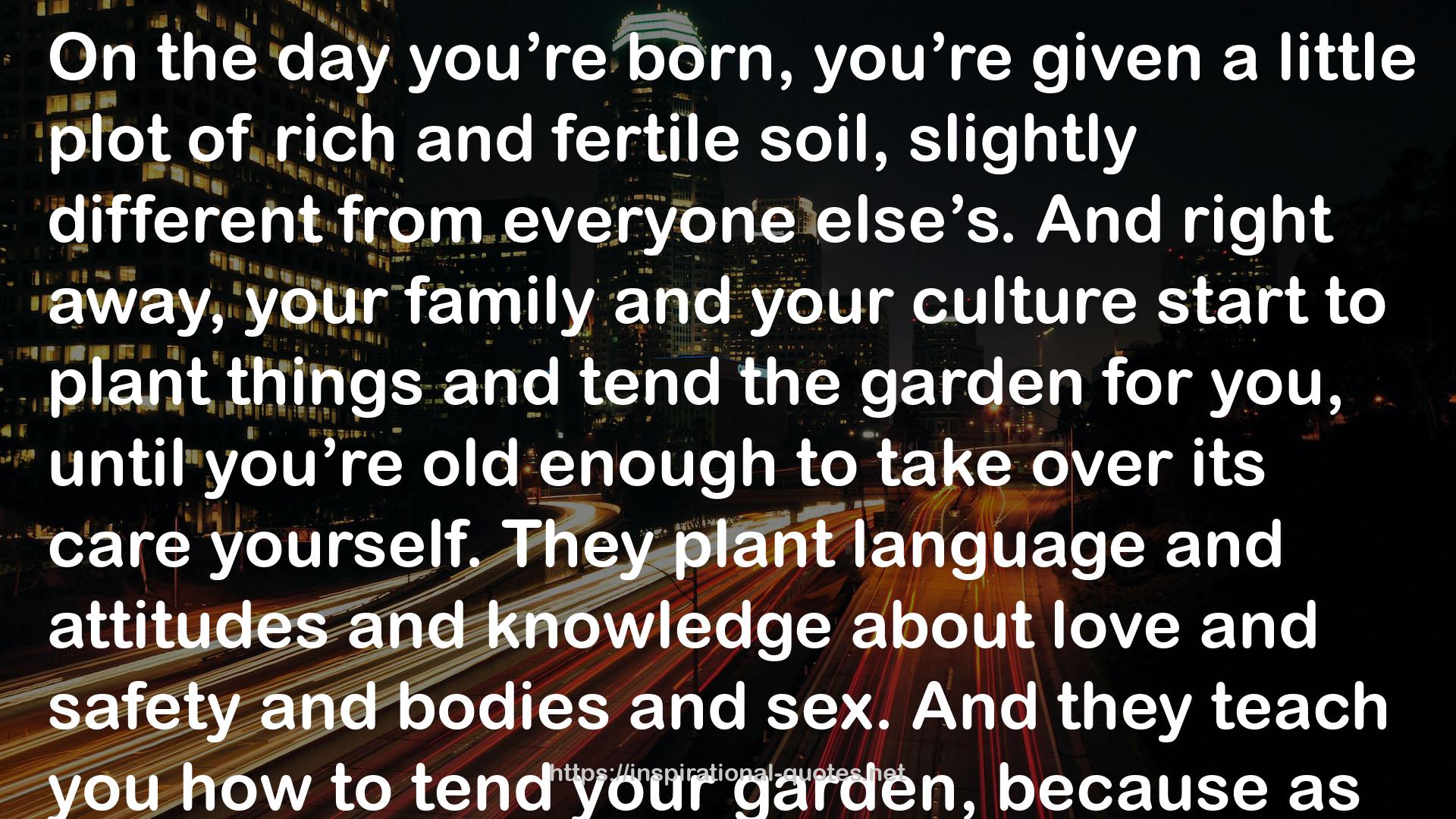" On the day you’re born, you’re given a little plot of rich and fertile soil, slightly different from everyone else’s. And right away, your family and your culture start to plant things and tend the garden for you, until you’re old enough to take over its care yourself. They plant language and attitudes and knowledge about love and safety and bodies and sex. And they teach you how to tend your garden, because as you transition through adolescence into adulthood, you’ll take on full responsibility for its care. And you didn’t choose any of that. You didn’t choose your plot of land, the seeds that were planted, or the way your garden was tended in the early years of your life. As you reach adolescence, you begin to take care of the garden on your own. And you may find that your family and culture have planted some beautiful, healthy things that are thriving in a well-tended garden. And you may notice some things you want to change. Maybe the strategies you were taught for cultivating the garden are inefficient, so you need to find different ways of taking care of it so that it will thrive (that’s in chapter 3). "
― Emily Nagoski , Come as You Are: The Surprising New Science that Will Transform Your Sex Life
